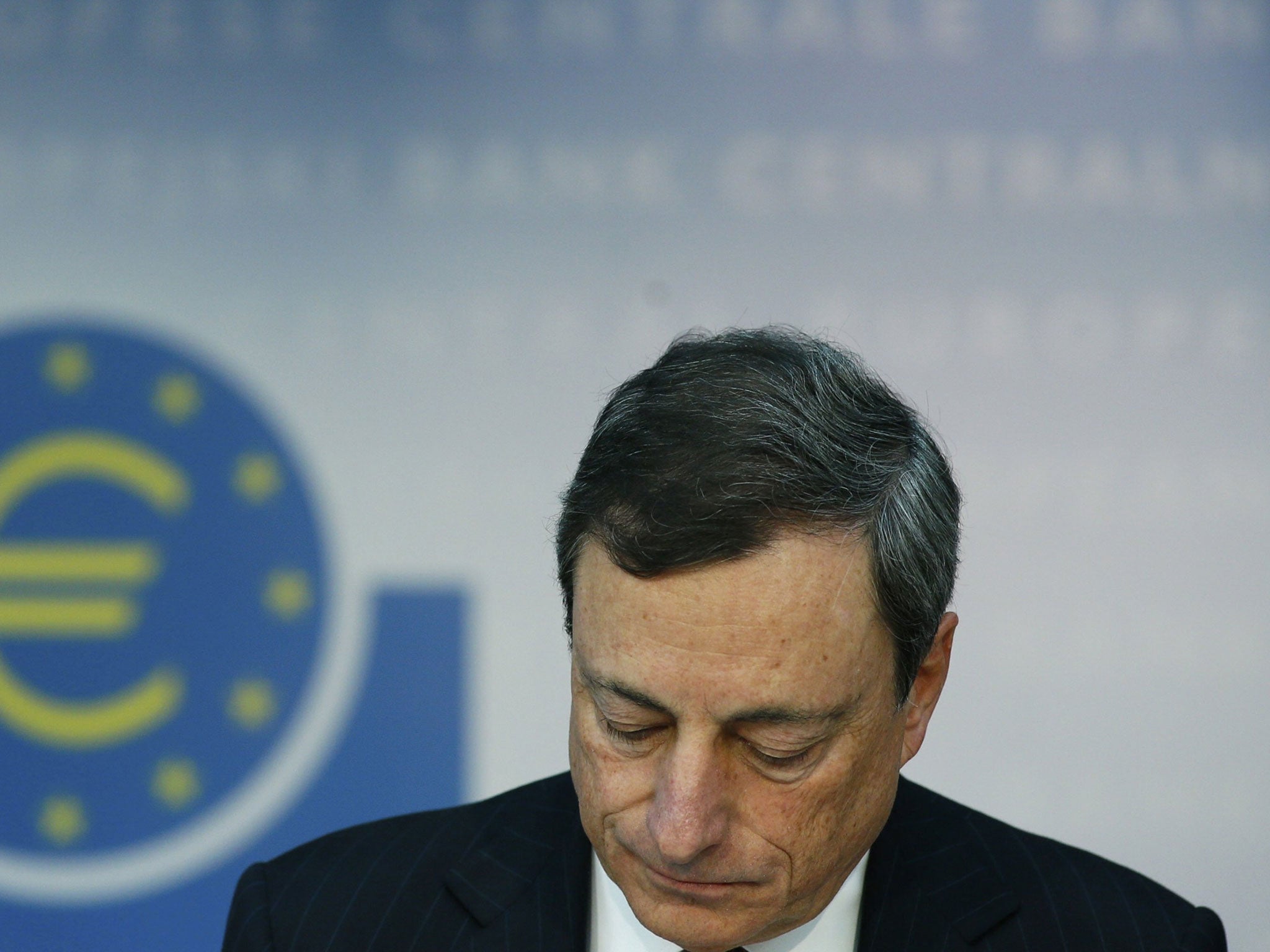Germany sends ECB's bond-buying programme to European Court

Your support helps us to tell the story
From reproductive rights to climate change to Big Tech, The Independent is on the ground when the story is developing. Whether it's investigating the financials of Elon Musk's pro-Trump PAC or producing our latest documentary, 'The A Word', which shines a light on the American women fighting for reproductive rights, we know how important it is to parse out the facts from the messaging.
At such a critical moment in US history, we need reporters on the ground. Your donation allows us to keep sending journalists to speak to both sides of the story.
The Independent is trusted by Americans across the entire political spectrum. And unlike many other quality news outlets, we choose not to lock Americans out of our reporting and analysis with paywalls. We believe quality journalism should be available to everyone, paid for by those who can afford it.
Your support makes all the difference.Doubts over the firepower of the European Central Bank president Mario Draghi’s “big bazooka” to prop up the eurozone were stoked today as Germany’s constitutional court ducked a decision on the legality of the scheme
Draghi’s Outright Monetary Transfer programme, unveiled in September 2012 but as yet unused, effectively quelled the region’s immediate crisis as he pledged to “do whatever it takes” to preserve the single currency by buying up the debt of the region’s strugglers in potentially unlimited quantities.
Germany’s court, however, today hedged its bets on the scheme. It said there was “good reason” to think OMT contravened the ECB’s mandate and broke the laws on debt financing of member states by the central bank but added it could also be legal if interpreted “restrictively”.
It has referred the decision to the European Court of Justice, which usually sides with the ECB, in a blow for Germany’s Bundesbank, which opposes the OMT. The ECJ is unlikely to make a ruling for at least a year.
The euro lost ground against the dollar today as markets speculated that the ruling increased the chances of some form of quantitative easing from the ECB.
CMC Markets analyst Michael Hewson said: “The German court doesn’t want to be the one that pulled the rug out from under the eurozone.”
News of the ruling came amid mixed signals on the UK economy, whose fortunes are linked with the recovery prospects of its biggest trading partner.
The UK’s deficit on trade in goods and services fell at a record pace to just £1 billion in December, the lowest for more than a year, due to lower imports of expensive goods like aircraft and ships.
But the UK’s manufacturers managed growth of just 0.3 per cent, half the pace expected.
Join our commenting forum
Join thought-provoking conversations, follow other Independent readers and see their replies
Comments